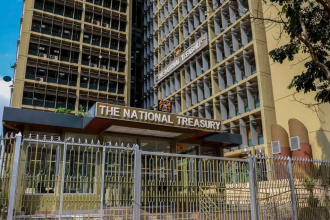In a fiscal year marked by economic headwinds and political uncertainty, the Kenya Revenue Authority (KRA) pulled off a modest but notable win, collecting Sh2.571 trillion, slightly above its target of Sh2.555 trillion.
This represents a 6.8 per cent growth in revenue and a performance rate of 100.6 per cent, an achievement that at face value suggests resilience.
But beneath the headline figures lies a more complex narrative of a fragile economy, shifting tax policy, and a revenue agency under pressure.
Kenya’s economy grew at a rate of 4.7 per cent driven by rebounds in agriculture, real estate, financial services, and transport. This relatively stable macro backdrop was reinforced by a stronger shilling, lower inflation (down to 3.6 per cent from 6.3 per cent), and a 12.5 per cent drop in international oil prices.
These factors helped ease domestic fuel prices, boosting business and household liquidity.
Yet, KRA’s achievement came in spite of significant economic and political hurdles.
The shelving of the controversial Finance Bill 2024, high commercial lending rates, and a slump in international trade due to global tariff wars and conflicts all conspired to constrain both imports and exports.
Imports grew by a meagre 0.04% per cent, while exports fell by 2 per cent, with horticulture and tea, two of Kenya’s major export earners, declining sharply.
A Tale of Two Halves
Revenue growth was uneven across the year with the first half registering 4.5 per cent growth, weighed down by political protests, constrained credit, and policy paralysis.
However, a turnaround in the second half, with 9.1 per cent growth, reflected the impact of aggressive compliance, enforcement, and digitalisation measures by KRA.
Key tax heads like Corporation Tax and Customs Duty registered strong double-digit growths (9.9 per cent and 11.1 per cent respectively), boosted by improved enforcement and technology use.
Domestic VAT also rebounded in the second half due to tighter compliance controls.
However, others like P.A.Y.E. (Pay As You Earn) and Domestic Excise underperformed relative to target, reflecting the squeeze on consumer spending and slow job creation.
P.A.Y.E. grew just 3.3 per cent, and excise revenue from beer and tobacco fell by 13.9 per cent and 8.9 per cent, respectively.
KRA’s success this year is also the result of increasingly aggressive and creative measures to broaden the tax net and improve collections.
These included taxation of the digital economy, which brought in Sh14.3 billion, a 32 per cent increase.
Others include tax base expansion initiatives such as the rollout of the Electronic Rental Income Tax System (eRITS) and real-time integrations with the betting sector.
Also on this list was debt recovery and tax amnesty programmes, which generated significant inflows – Sh141 billion in debt recovery and Sh 29 billion from the amnesty.
Perhaps most tellingly, taxpayers redeemed a record Sh49.6 billion worth of adjustment vouchers (credits from prior refunds), nearly doubling from the previous year. This suggests that while collections rose on paper, much of it came from pre-existing taxpayer credits, raising questions about the organic strength of current revenue growth.
Policy and Structural Challenges Persist
Despite a strong headline number, Kenya’s revenue system remains deeply exposed to economic shocks, narrow tax base realities, and administrative inefficiencies.
The fact that KRA missed its Exchequer Revenue target by Sh24 billion underscores continued shortfalls in core domestic revenue streams.
Furthermore, constrained access to credit with private sector lending shrinking by 1.1 per cent points to underlying economic stagnation, which could compromise future revenue performance.
As KRA marks 30 years of existence, its achievements in digitisation, compliance, and revenue innovation are commendable. But sustaining revenue growth will require more than enforcement; it will depend on economic expansion, public trust in tax policy, and the government’s ability to balance tax obligations with incentives for growth.
The suspension of Finance Bill 2024 reforms and ongoing public unrest highlight a growing trust deficit between taxpayers and the state, one that no amount of automation or enforcement can fully resolve.
The revenue agency may have won this round, but Kenya’s broader fiscal sustainability remains in delicate balance.












